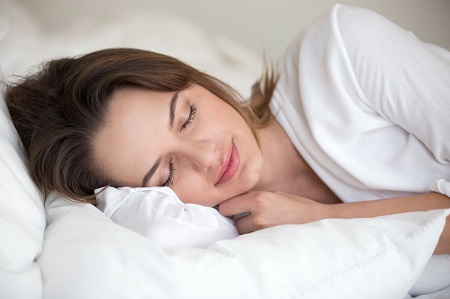Home remedies for Sleep Apnoea
How do know you have sleep apnoea? Did you know that women can have sleep apnoea? Are you exhausted? Has your partner complained about your snoring? What can you do about it? How much will it cost?
Apnoea is when breathing pauses or stops. Sleep apnoea is where breathing stops and starts while you’re asleep. This is obstructive sleep apnoea (OSA), when the upper airway collapses and obstructs the air flow. It’s a sleep disorder that can seriously impact your quality of life and be dangerous to your health if not diagnosed, understood or remedied. Part of the danger is that common symptoms of sleep apnoea are also indicators for other health issues.
OSA is most often associated with men, snoring and obesity, but the potential risks for women are similar. The incidence of heart attack and stroke also increase with OSA. However, women are generally more likely to experience low level and partial apnoea (or hypopnoea) than men.
Recognising sleep apnoea
Obvious indicators for sleep apnoea (in both men and women) are loud and frequent snoring, whether you make gasping, choking or snorting sounds during sleep, or experience episodes where you stop breathing. Another sign is if you need to frequently urinate in the night, nap during the day or have lapses in concentration.
OSA can also lead to dis-associative behaviour like failing memory or learning difficulties, as well as anger, irritability and even depression. Clinical indicators might include headaches, dry mouth or sore throat when waking in the morning. Sleep apnoea has also been associated with weight gain, stress and anxiety.
Testing for sleep apnoea
Official OSA testing can be done in-home or in a dedicated sleep clinic using a Polysomnography machine to measure and record sleep stages, breathing and cardiac parameters. Testing can determine how symptomatic, moderate or severe your OSA is, which is measured by the average number of times breathing is disrupted each hour. Self-operated home sleep tests are widespread, often through a pharmacy, and don’t require a doctor’s referral.
Treating severe sleep apnoea
Various treatments are available, depending on the severity of your OSA. For moderate to severe sleep apnoea (above 15 episodes per hour) a continuous positive airway pressure (CPAP) machine is likely to be necessary. CPAP machines connect to a mask and apply positive air pressure to prevent upper airway collapse. Various mask designs are available for individual comfort and the machines themselves can be portable enough to travel with. A CPAP machine is usually less disruptive to a partner than snoring, so everyone can get a good night’s sleep.
Home remedies for mild to moderate sleep apnoea
For less severe OSA, controlling or moderating behaviours and risk factors can help, as can creating a better sleep routine and strategy.
Excess weight is linked to OSA, so a healthy diet and regular exercise can help. Exercise is also beneficial in promoting better sleep and countering daytime drowsiness. Moderating alcohol, caffeine and sugar intake, especially in the evening, can also improve your sleep, as can a conscious closing down of electronic screens before retiring.
OSA seems to be more prevalent and severe in people who sleep on their backs, so altering your sleeping posture can help. By sleeping on your side, or elevating your head, you can minimise the effects of OSA.
- Wedge pillows are designed for sleeping on your back with your body elevated from the waist up. They may help keep your airway from collapsing.
- Position therapy devices vary between the simple (and inexpensive) to electronic. You can use extra pillows or a tennis ball to stay on your side or purchase a dedicated ball or belt with attachments that create an obstruction/irritation to force the same. Electronic devices are designed to attach to your neck or back and monitor your sleeping positions. They claim that the intensity of vibrations can ‘train’ you away from sleeping on your back and reduce snoring without interrupting sleep.
- Dry air contributes to nasal congestion and throat irritation that can exacerbate snoring. Monitoring humidity, or using a humidifier, can create a better sleeping environment.
Various over-the-counter nasal or dental anti-snoring devices may also help with mild OSA.
- Anti-snoring mouth guards are designed to keep open the back of the airway by shifting the lower jaw slightly and repositioning the tongue if breathing through the mouth.
- Inexpensive nasal strips or nostril dilators aim to open nasal passages to improve breathing through your nose.
A variety of simple and smart strategies to minimise your risks of OSA can improve your sleep and health. You should aim to fully understand any symptoms, and perhaps consult your doctor, before self-diagnosing a sleep apnoea or other sleep disorder.


0 Comments